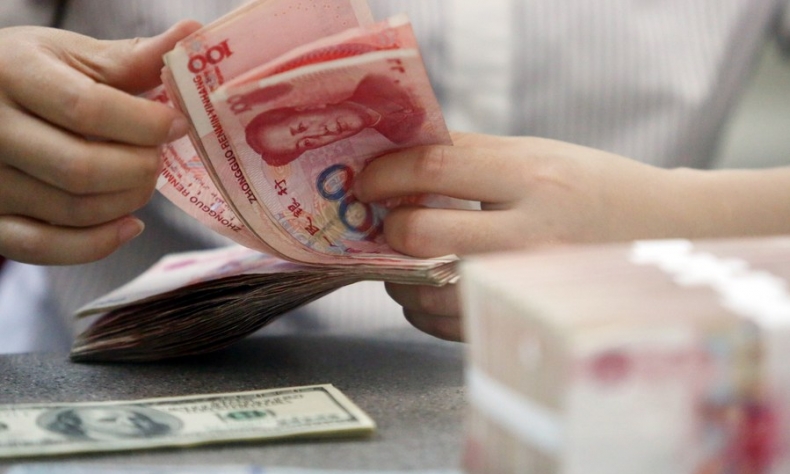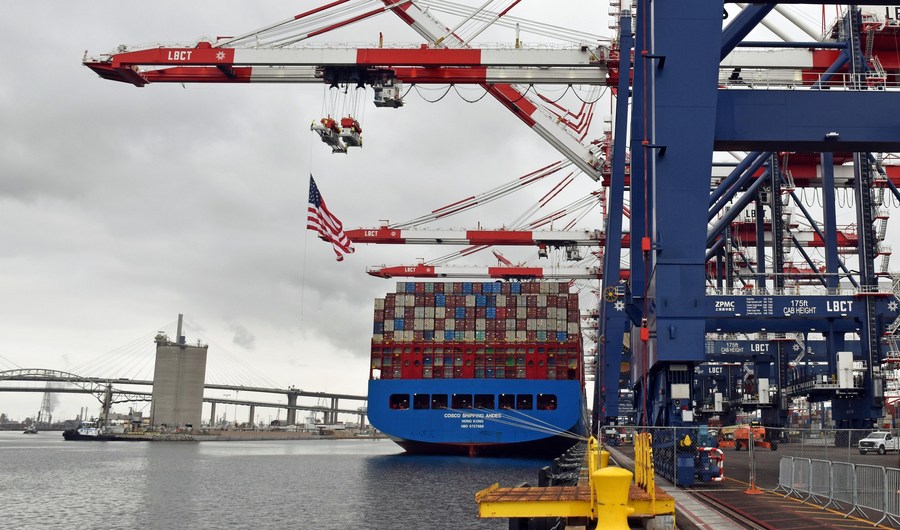Debunked: China’s De-Dollarization

China does support the diversification of international currencies, which helps shore up the global economy’s ability to cope with risks.
According to statistics released by the State Administration of Foreign Exchange on May 7, China’s foreign exchange (forex) reserves had hit $3.2048 trillion by late April, an increase of $20.9 billion or 0.66 percent over the end of March. The U.S. dollar remains the dominant forex reserve of China, and its amount is on the rise. The argument that China is accelerating de-dollarization to ramp up the internationalization of the renminbi (RMB) and American political worries about the RMB’s threat to the status of the dollar are baseless.
De-dollarization, a movement to reduce reliance on the dollar, is emerging as a buzzword in global trade. An array of countries like Brazil, Argentina, Russia, Saudi Arabia, Iraq and Southeast Asian countries have already announced they will start settling trade with China in RMB.
However, given the huge size of its U.S. dollar forex reserves, China is not seeking to get rid of U.S. dollars. To a large extent, the de-dollarization hype is designed to fuel China-U.S. trade tensions as the RMB’s internationalization is well underway.
After World War II, the U.S. dollar became the major international currency, the first choice for international settlement and the major forex reserve currency for governments around the world. Its status as such won’t change anytime soon.
Out of security concerns, China’s forex reserves consist of more currencies than just the dollar, but the dollar still enjoys a predominance. By the end of 2017, U.S. dollar and euro assets made up approximately 65 and 25 percent, respectively, of China’s total forex reserves. Assets in the Japanese yen and the British pound each accounted for 3 to 4 percent. By late 2022, the proportion of U.S. dollar reserves had risen to nearly 66 percent with those of Japanese yen and British pound reserves declining.
Plus, the dollar is also the major currency for international settlement. In 2022, 70 percent of China’s cross-border trade was invoiced in dollars, followed by the RMB at the rate of 19 percent; the euro came in third place.

China is the largest trading power in the world, so it’s natural for its trading partners to opt for the RMB in trade settlement, but this will not shake up the U.S. dollar’s status as an international currency. According to statistics from the International Monetary Fund, by late 2022, the U.S. dollar had made up 58.36 percent of central banks’ forex reserves, securing the safe first place, followed by the euro at 20.47 percent, the Japanese yen at 5.51 percent, the British pound at 4.95 percent, and the RMB at 2.69 percent in fifth place. It’s safe to say the RMB is still far away from being able to dethrone the U.S. dollar.
The increasing preference for the RMB is partly a result of the weaponization of the U.S. dollar. Taking advantage of the dollar’s position as a global currency, the U.S. has managed to reap global wealth. After the outbreak of COVID-19, the country began flooding the world with dollars, contributing to rampant inflation. Over the past months, it has seized global wealth with a wave of interest rate hikes, squeezing economic growth the world over.
After the conflict between Russia and Ukraine broke out in early 2022, the U.S. froze dollar assets of Russia’s central bank held in U.S. financial institutions and, along with the European Union and other Western partners, cut off most Russian banks from the SWIFT interbank payments system. This move further dampened the world’s confidence in the dollar as a free currency. In this context, turning to other currencies for reserves and settlements is understandable.
As the second largest economy in the world, China is running a stable and sound economy, a fact persuading more countries to settle trade in RMB. Doing so will not only lessen the risks incurred by exchange rate fluctuations and high conversion costs but also facilitate trade with Chinese businesses.
However, China does not seek to discard the dollar because doing so might shake international financial stability, which runs counter to China’s own interests given its huge dollar reserves. But China does support the diversification of international currencies, which helps shore up the global economy’s ability to cope with risks.
 Facebook
Facebook
 Twitter
Twitter
 Linkedin
Linkedin
 Google +
Google +










